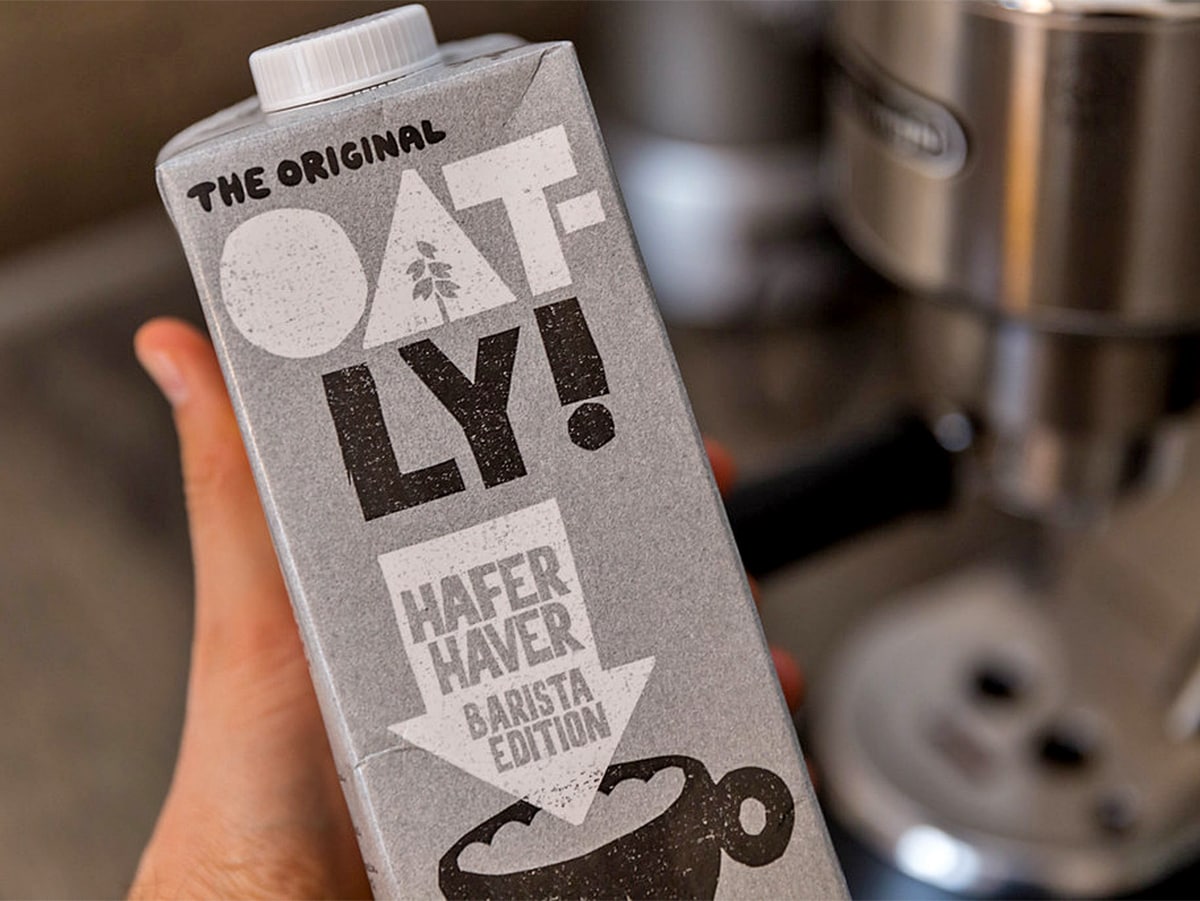Plant-based milk producer Oatly [OTLY] floated on the Nasdaq, on 20 May.
Oatly’s share price was set, ahead of the debut, at $17 — towards the top of its expected range, according to the Wall Street Journal, valuing the firm at circa $10bn, despite stock market conditions plagued by volatility, inflation and a fall in investor appetite for growth stocks.
Oatly’s share price immediately jumped to $22.12 and reached as high as $22.74 without falling below $19.99, before closing its first day of trading at $20.20. On 21 May, Oatly’s share price climbed higher still, closing 11.19% up on the previous day’s close at $22.46. During the day, Oatly’s share price reached $23.25, without ever dipping below $21.40.
Investors will hope that these first days’ strong performance for Oatly’s share price is a sign of things to come.
Cash cow
Oatly’s pre-IPO valuation of $10bn already marked a significant step up since July, when a deal to sell a 10% stake to Blackstone and a group of celebrities for $200m valued the Swedish company at $2bn.
This rise in valuation came despite the fact its net losses in 2020 increased 69.67% to $60.4m from $35.6m the previous year. Revenue, however, soared 106.6% to $421.4m. This rapidly increasing revenue has convinced investors to spend enough on its stock to send Oatly’s market cap as high as $13bn.
$13 billion
Oatly's highest market cap so far
Oatly has leaned heavily on the social and environmental advantages of oat milk as opposed to cow’s milk in its pitch, stressing the lower greenhouse gas emissions, land use and energy consumption involved in production of the former.
The company hopes to attract environmental, social and governance (ESG)-focused funds and investors to its stock as a result of this focus. Its investor base already famously includes the likes of Oprah Winfrey, Natalie Portman, Howard Schultz, the former CEO of Starbucks, and Jay Z’s Roc Nation.
Oatly raised $1.4bn through the sale of its shares, which will be used to expand its production capacity, according to Toni Petersson, Oatly CEO, as reported by Forbes. The oat milk market in the US is expanding rapidly, growing 200% between 2019 and 2020.
Oatly’s US sales doubled in the period — which appears positive at first glance, but given the market itself grew twice as fast during the period, it is potentially a sign that Oatly is losing market share growth at the expense of competitors such as Chobani and Califia. Nearly a quarter of Oatly’s revenues are derived from the US market.
Oatly’s other major market is Asia, where its product is sold in 11,000 tea or coffee shops and at 6,000 retailers. The Chinese government and Verlinvest have a joint venture worth 46% of Oatly’s value, and Oatly is reported to be considering a second listing in China. Blackstone is the firm’s second-largest investor, attracting some criticism of owing to the group’s links to deforestation in the Amazon.
Meat-free ETFs
The major tailwinds in favour of plant-based food and beverage producers are a relatively recent phenomenon, and investors may look towards the likes of Beyond Meat [BYND] for clues as to how Oatly’s share price will perform in the medium term following its debut.
Since going public on 2 May 2019 at an opening price of $46, Beyond Meat’s share price has gained 113.52% to close at $142.61 on 27 May. It has seen some major spikes during that time, including an all-time-high of $239.71 in July 2019. Besides the March 2020 crash in response to the coronavirus pandemic, when it sank as low as $48.18, it has remained well above its opening price.
113.52%
BYND's share price gain since IPO
Beyond Meat has been a mainstay of the Renaissance IPO ETF [IPO], which tracks the Renaissance IPO Index of companies up to two years after their IPO.
As of 27 May, Beyond Meat was the 23rd-largest holding with 1.37% of the fund’s weight. The ETF has gained 75% in the past 12 months, but has fallen 3.53% in the year-to-date (as of 27 May’s close). Given it is now more than two years since Beyond Meat’s IPO, it seems likely that it will be dropped from the fund at the end of the current quarter, while Oatly could be set to join the fund’s holdings.
Meanwhile, Beyond Meat constituted 1.02% of the TrueShares ESG Active Opportunities ETF [ECOZ] as of 27 May. The fund has gained 5.87% in the year-to-date and 39.52% over the past year.
Disclaimer Past performance is not a reliable indicator of future results.
CMC Markets is an execution-only service provider. The material (whether or not it states any opinions) is for general information purposes only, and does not take into account your personal circumstances or objectives. Nothing in this material is (or should be considered to be) financial, investment or other advice on which reliance should be placed. No opinion given in the material constitutes a recommendation by CMC Markets or the author that any particular investment, security, transaction or investment strategy is suitable for any specific person.
The material has not been prepared in accordance with legal requirements designed to promote the independence of investment research. Although we are not specifically prevented from dealing before providing this material, we do not seek to take advantage of the material prior to its dissemination.
CMC Markets does not endorse or offer opinion on the trading strategies used by the author. Their trading strategies do not guarantee any return and CMC Markets shall not be held responsible for any loss that you may incur, either directly or indirectly, arising from any investment based on any information contained herein.
*Tax treatment depends on individual circumstances and can change or may differ in a jurisdiction other than the UK.
Continue reading for FREE
- Includes free newsletter updates, unsubscribe anytime. Privacy policy





